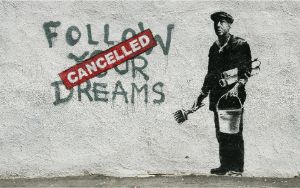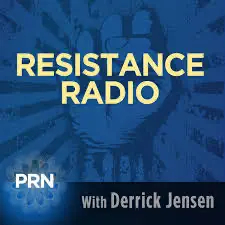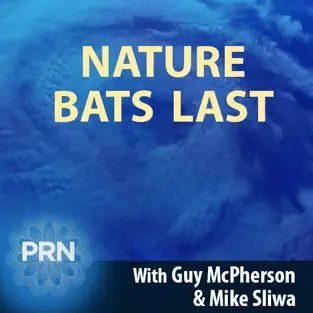Image by Banksy
The cable news announced the other day that Covid-19 patients placed in critical care may have to be on ventilators for 21 days. Only a few years ago, I went in for an ordinary hip replacement. A month or so later, I got the hospital billing statement. One of the line-items went like this: Room and board: 36 hours…$23,482.79. I am not jiving you. That was just for the hospital bed and maybe four lousy hospital meals, not the surgery or the meds or anything else. All that was billed extra. Say, what…?
Now imagine you have the stupendous good fortune to survive a Covid-19 infection after 21 days on a ventilator and go home. What is that billing statement going to look like? Will the survivors wish they’d never made out of the hospital alive?
Right now, we’re in the heroic phase of the battle against a modern age plague. The doctors, nurses, and their helpers are like the trembling soldiers in an amphibious landing craft churning toward the Normandy beach where the enemy is dug in and waiting for them, with sweaty fingers on their machine guns and a stink in the pillbox. Some of the doctors and nurses will go down in the battle. The fabled fog-of-war will conceal what is happening to the health care system itself, while the battle rages. After that, what?
One thing will be pretty clear: That the folks in charge of things gave trillions of dollars to Wall Street while tens or perhaps hundreds of thousands of Covid-19 survivors got wiped out financially with gargantuan medical bills. Do you think the Chargemaster part of the hospital routine will just stop doing its thing during this emergency? The billings will continue – just as the proverbial beatings will continue until morale improves! In the aftermath, I can’t even imagine the ‘splainin’ that will entail. The rage may be too intense to even get to that. For some, it may be time to lubricate the guillotines?
Meantime, of course, the global economy has shut down which suggests to me, anyway, that any prior frame of reference you may have had about money and business and social normality goes out the window. The world is still here. We’re just going to have to learn to live in it differently. The American portion of the world is in need of a severe retrofit and reprogramming. We waited too long to face this in a spell of tragic complacency and the virus has forced the issue. Here are the main things we have to attend to:
Reconsider how we inhabit the landscape. Do you think $20-a-barrel oil is a boon to the Happy Motoring way-of-life? It’s going to at least bankrupt most of the companies producing shale oil, and that’s where way-more than half of our production came from in recent years. How many ordinary Americans will be able to finance car payments now? To say suburbia will not be functioning too well mere months from now is a merciful way to put it.
The big cities will not recover from the trauma and stigma of the virus, but that is only the beginning their problems. What, exactly, will the suffering poor of the ghettos do, under orders to remain cooped-up until the end of April? These are people who are unlikely to have laid in supplies ahead of time, and a month from now they are sure to be very hungry. How will the big cities be able to manage their infrastructures with municipal bonds massively failing? How will they provide social services when tax revenues are down to a trickle? The answer is, they won’t manage any of this. They grew too big and too complex. Now they have to get smaller, and the process will not be pretty.
What will the business of America be after Covid-19? If we’re lucky, it will be growing food and working at many of the activities that support it: moving it, storing it, selling it, making an order of smaller-scaled farm machinery, including machines that can be used with horses and oxen, breeding the animals. I’m not kidding. Growing food happens in the countryside, where the fields and pastures are. There are towns there, too, associated with the farming, where much of the business of farming and the activities that support it transact. I believe we’ll see impressive demographic movements of people to these places. There are opportunities in all that, a plausible future. The scale of agriculture will have to change downward, too. AgriBiz, with its giant “inputs” of chemicals and borrowed money, is not going to make it. Farms have to get smaller too, and more people will have to work on them. Farewell to the age of the taco chip!
If we want to get around this big country of ours, and move food from one place to another, we better think about fixing the railroads. Try to imagine what six trillion dollars might have done for that crucial venture. And I’m not talking about high-speed and high-tech; I mean the railroads that were already here. Where I live, the tracks are still in place, rusting in the rain. How did we let that happen?
Then there is the question of how do we behave? You may not think that matters so much, but we’ve become so profoundly dishonest that it’s impeding our relationship with reality. On top of that we’re surly, impolite, clownish, blustering, greedy, and improvident. Believe me, that is going to change. Hardship is a great attitude-adjuster. When Americans awake from the corona coma like millions of Rip Van Winkles, it will matter again to be upright and to act in good faith. This will be a different country.
Author
James Howard Kunstler is the author of The Long Emergency, Too Much Magic, The Geography of Nowhere, the World Made By Hand novels, and more than a dozen other books. He lives in Washington County, New York," so says his website, Kunstler.com. He is, however, much more. During the past two decades, he has remained at the forefront of the alternative press, both online and in print, advocating against "Happy Motoring" and suburban lifestyles in favor of simpler, community-based living where people learn to rely on themselves and each other rather than corporations, government and our phony-baloney economy. His Monday and Friday Clusterfuck Nation blog gets the week off to a good beginning and closes it on a high note. He is also an accomplished painter who obviously enjoys the rural beauties of upstate New York where he has settled and detests contemporary culture's many eyesores. If this piece is your introduction to his work, check out his blog. If you know him well, support him at Patreon.
Reposted with permission of the author.




